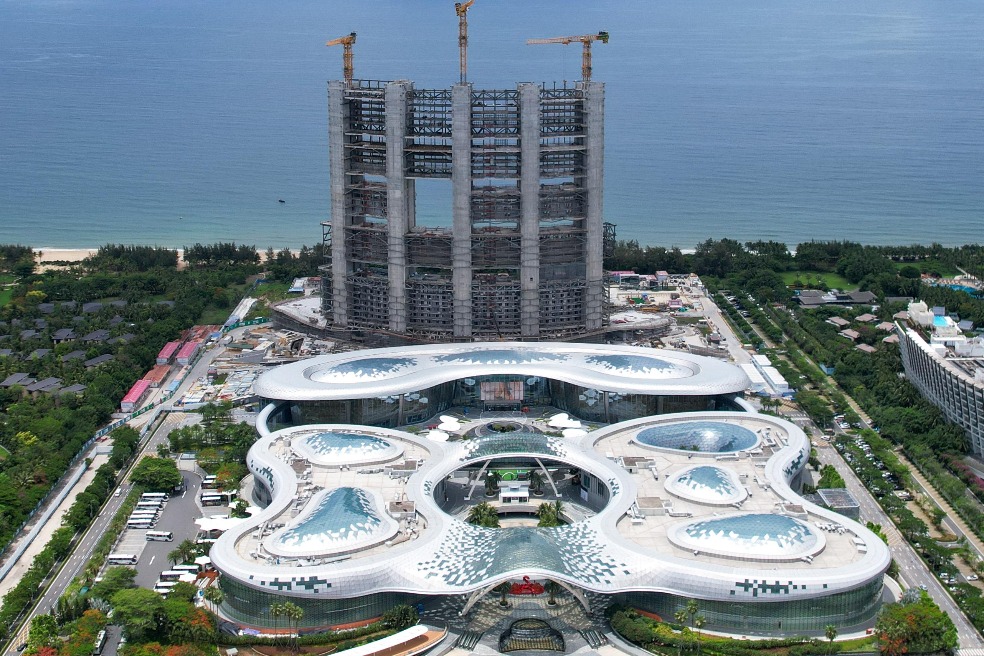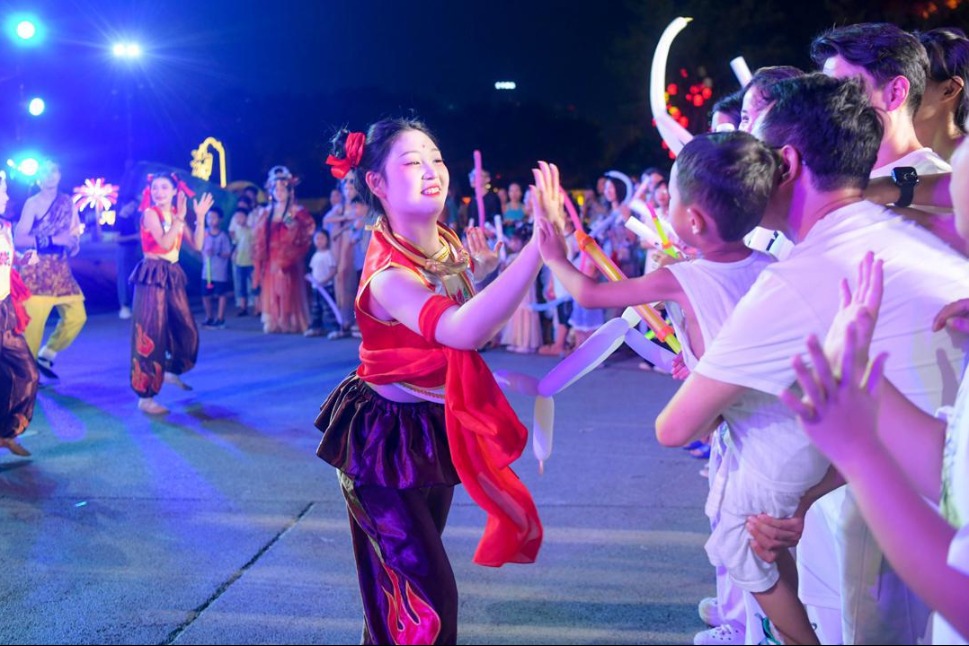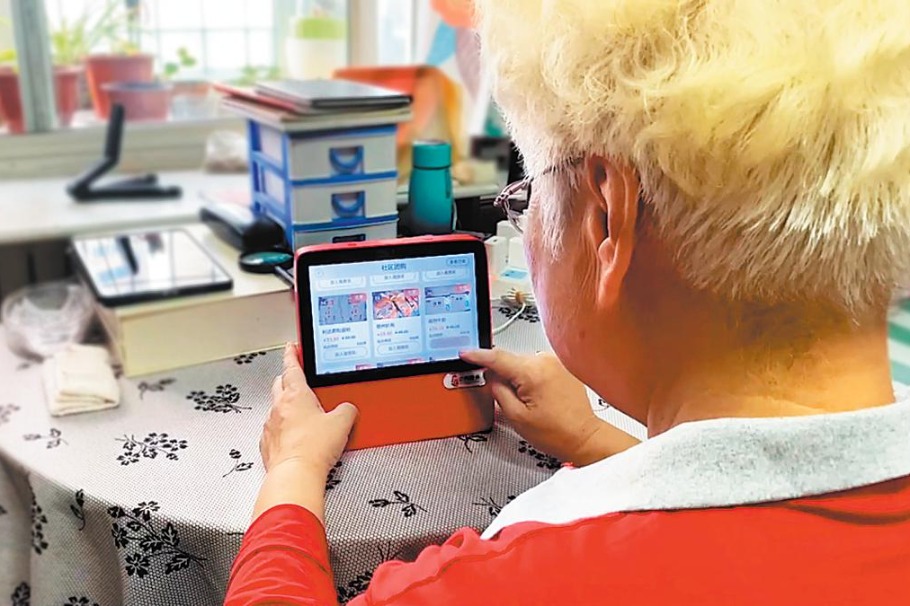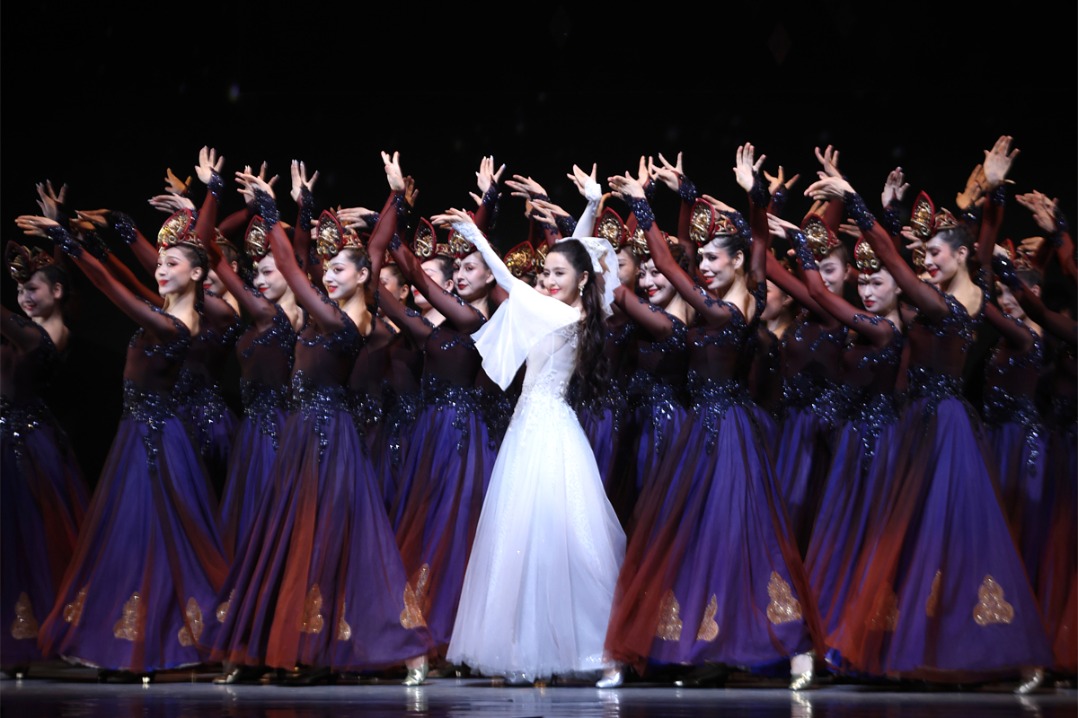It's not a piece of cake on the slopes
Snowboarder inspires many as he seeks to come in from the cold and become a champion, Wang Qian reports.

Life is not a fairy tale and dreams, sometimes, do not come true. But that's no reason not to pursue them, and for snowboarder Zhang Jiahao, who used to be a baker, what matters most is the courage to try to achieve them.
The 27-year-old's Olympic dream ended on Nov 19 in Landgraaf, the Netherlands, when he failed to complete his last jump-a frontside 720 and a backside 900. It sounds complicated and it is. Frontside means spinning on your axis twice, a full 360 twice. Backside is the reverse.
Since early 2020, Zhang had been on his own frozen odyssey with no coach or support team, competing across the world to win an Olympic berth, even during the COVID-19 pandemic. He is a snowboarder who wants to come in from the cold.
The International Olympic Committee stipulates a qualification standard for each freestyle skier and snowboarder taking part in the slopestyle (negotiating obstacles), halfpipe (like a half cross section of a large pipe) or big air (launching off a large ski jump) disciplines-they must have placed in the top 30 at a World Cup event during the qualification period and also scored a minimum of 50 points during the World Cup series or world championships on at least one run. It meant that Zhang needed 50 points to land an Olympic spot.
"The Beijing 2022 Winter Olympics being 'on my doorstep' motivated me to keep going and to see how far I could go. Although I failed, I was very proud of myself going all out for it," the Beijing native says.
During the past two years, he competed in Canada, Sweden, Chile, Switzerland and the Netherlands, he adds, meeting hundreds of snowboarders and skiers from home and abroad, whose love for skiing has been both impressive and inspiring.
Zhang's story has gone viral on social media after his passion for skiing made national headlines. On Monday night, he shared his journey in China Daily's latest episode of Youth Power with the theme of keeping the Olympic spirit alive. Youth Power aims to build a global platform for communication and exchange, focusing on the interests and ideas of Generation Z, those born between the mid-to-late 1990s and the early 2010s.
Sharing videos of himself practicing around the world, his account on short-video sharing app Douyin, known as TikTok overseas, has attracted about 350,000 followers and garnered nearly 1.6 million likes so far. Nicknaming him "Snowboard Lunatic", many people online have commented that, in him, they found the power of dreams and the infinite possibility of life.
"I hope that my story can plant a seed in people's hearts. A seed of hope and dreams, which will one day grow into a tree," says Zhang.
A Sina Weibo user named Molly-97 comments under one of Zhang's posts: "Your story opened my mind about how to live my life. When I feel down, your posts cheer me up."
Zhang's fame helped him to "realize his Olympic dream", not as an athlete, but as a commentator in the broadcast booth of Migu, a subsidiary of China Mobile that provides digital content and related services.
"Before Su Yiming competed in the Games, it was like I was with him. Feeling my heart pounding, I got a bottle of an energy drink and listened to a song on my earphones, like I always do before a competition. I even imagined what tricks I would do for the preliminary and final rounds," Zhang says, adding that he first met the now 18-year-old star in 2013. Su won China's first Olympic gold in the men's snowboard Big Air and a silver medal in men's snowboard slopestyle at the Games.
Living on the edge
The first time that Zhang went to a ski resort in Beijing, he was 17, the same age as Su when he won his Olympic gold.
"It was Nanshan Ski Resort and I couldn't even stand up on my snowboard," Zhang remembers, adding that it was not "love at first slide".
However, after trying for two months to keep his balance and not fall, attempting to zigzag, getting it right the second time, and rocketing off an 8-meter ski jump successfully at the fifth attempt, Zhang couldn't get snowboarding out of his mind, even while working. At that time, he was a baker at the Kempinski Hotel in Beijing, following his father's footsteps.
"Not good academically, I entered an occupational middle school for courses in the culinary field. After graduation, I became a baker as my father wished," Zhang says, adding that, while the job was stable, it didn't make him happy.
His salary was 1,200 yuan ($190) per month during his internship period and increased to 3,500 yuan on becoming a regular worker.
Taking a night shift, Zhang would run for the 8:15 am bus to the ski resort directly after finishing a night's work at 7:30 am. That left only three hours on the bus for sleep and no time for lunch in order to have as much time as possible on the slopes, according to Zhang.
"By taking public transportation and never eating outside, I saved every penny I earned for snowboarding," Zhang says.
A season's pass to the ski resort would cost him three months' salary, while snowboard gear meant saving for more than half a year.
After two years of practice, Zhang did a "d-spin 7" (a double backflip) in his first official competition-the Red Bull Nanshan Open, previously initiated by skateboarding enthusiasts-in January 2014, which saw him secure ninth place. After the event, he acquired a sponsor for his equipment. At the following Nanshan Open, he won second place in the domestic group.
In 2016, he made the bold decision to quit his job and become a full-time professional snowboarder. His performance also helped him to get into the Heilongjiang provincial snowboarding team. He could represent the provincial team in competitions, but he had to cover all of his fees for training and competitions.
Although Zhang knows that age matters a great deal in this discipline, he believes that snowboarding is a lifelong career and passion.
To prepare for his first international competition-the Cardrona Games 2016 in New Zealand-Zhang had saved more than 20,000 yuan to cover his competition fees.
"I saved 2,000 yuan out of my 3,500 yuan salary every month in 2015. And my father also sponsored me with around 10,000 yuan," Zhang recalls of those difficult but happy days.
His efforts paid off and, representing China, he came 16th in the Cardrona Games.
"Competing with world-class snowboarders at the Cardrona Games made me wonder if it would be possible to qualify for the Beijing 2022 Winter Olympics," Zhang says, adding that even if it was just 1 percent of a possibility, he decided to fight for it.
"When my journey to the Olympics ended, I might have been a little sad, but I had no regrets, because I gained more-making many friends, seeing beautiful places and gaining the recognition and support from people that I do not even know," Zhang says.
Behind his passion for snowboarding, Zhang admits that he has experienced severe injuries: three concussions, two broken hands, collapsed lungs (twice) and torn ligaments in his right leg.
He still remembers the time he broke his hands after he tried an "inverted S 720" from a 15-meter wall.
"The moment I landed on my hands, I heard them snap, but didn't feel pain, instead, I was glad that I did it! In fact, those were the last words I said before losing consciousness," Zhang says.
But his love for snowboarding hasn't been hindered by the injuries or difficulties. His next dream is to snowboard down every snowcapped mountain in the world.
In his friends' eyes, Zhang is crazy about the sport. "It has changed his life," Liu Jinglei, one of his friends, was quoted as saying by China Youth Daily.
"Looking back for the past decade, I realize how snowboarding has changed my life-first time traveling by plane, first time going abroad and first time seeing the ocean," Zhang says.
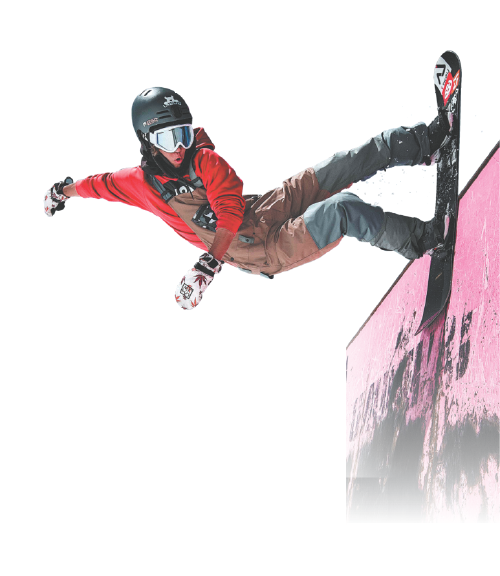
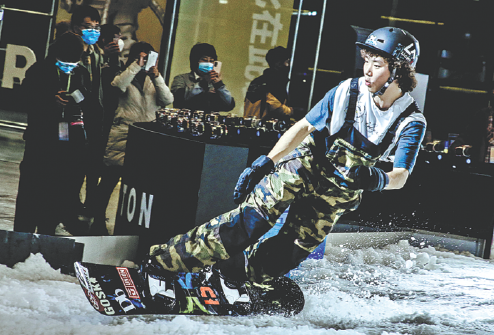
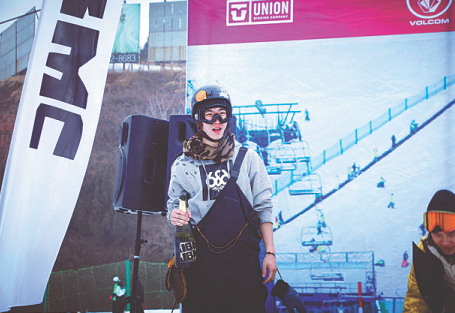
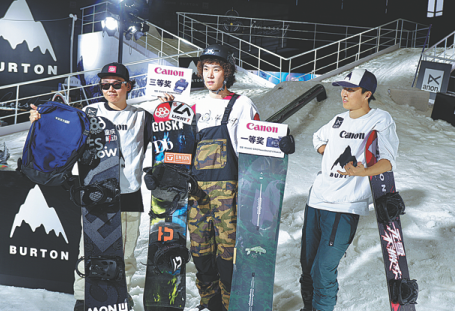
Today's Top News
- Japanese PM Ishiba denies reports he will resign next month
- China is one of the safest countries in the world: official
- Hainan FTP to launch independent customs operations on Dec 18
- Japanese PM signals intention to resign
- Hainan Free Trade Port to launch island-wide independent customs operation
- Trump says US completes trade deal with Japan
















